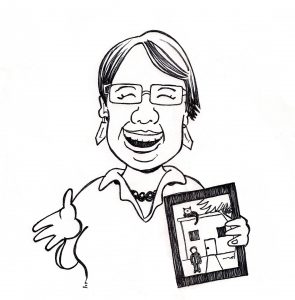Autistic people are often accused of things which were not ever their intention. We get told we are manipulative or sneaky, rude and disrespectful, even that we are creepy when we do not mean to be. A lot of the time this is the result of poor understanding of autistic thinking styles and communication approaches. While it may sound minor, these misunderstandings can lead to some very negative consequences for us.
A misdiagnosis of borderline personality disorder (BPD) is a very common psychiatric response to misunderstanding autistic people. We are seen as disordered and intentionally difficult when in fact we are merely trying to make sense of the world. The reason for the misdiagnosis of BPD is often this: many Autistic people have emotion blindness/Alexithymia meaning that they may seem emotionless one minute and highly emotional the next. In BPD there is a thing called emotional dysregulation which looks similar to alexithymia but is different. Autistic people often join social groups or do activities in order to be socially accepted. These interests and connections can change, sometimes rapidly, which looks like another BPD symptom – identity issues. However it happens for a different reason in autism. One of the main elements of BPD is self-destructive behaviours – self harm etc. Autistic people can engage in these behaviours too but for different reasons. This makes autism look like BPD but if doctors understood these different reasons for similar elements then that misdiagnosis would almost certainly be a less frequent occurrence. BPD is not a good misdiagnosis to get as it involves a lot of prejudice from mental health workers and it is not helpful to have a mental health diagnosis which is inaccurate. I have met countless autistic people who have been misdiagnosed with BPD. It should be noted that the perception that people with BPD are manipulative and the stigma surrounding them is just that – stigma. The issue with misdiagnoses is that it makes it difficult to access the right services and can confuse your sense of who you are rather than one diagnosis being somehow ‘better’ than another.
One misunderstanding can happen when autistic people look in a direction they are not ‘meant to’. When I was a teenager one of my work colleagues thought I was staring at her legs. I probably was but not consciously. I often just find myself pointing my eyes in a direction but I am not processing any visual information, I’m just looking that way. The young woman concerned thought I was rather pervy and it was very awkward. Another ‘looking’ issue can happen when someone struggles with eye contact so doesn’t look at people’s faces. They might look down but what is under the face? Well the boobs for one thing and looking at women’s breasts is generally viewed as really pervy and misogynist. Very hard to explain that you are not doing something for the same reason which neurotypical people are convinced you are. In fact the explanations autistic people make in these situations tend to be met with total incredulity from the neurotypical person making the complaint as the ‘excuses’ are not in the knowledge of the accuser. In these instances explaining can actually do more harm than good.
A lot of this issue comes from a pack of autism knowledge and understanding. This is bad enough when a person has a diagnosis but when they don’t it can be really challenging and lead to a range of difficult situations including criminal sanctions. I heard a story of a young autistic man who was on a bus. The women in front of him was wearing shiny silver tights. The autistic man thought this was a wonderful stim and touched her leg. He was charged and had to go through a very stressful court process for doing something which, while it may have seemed very creepy to the person it was done to, was in fact not done with any violent intent. This can be quite a tricky situation as the feelings of the ‘victim’ need to be considered as well. But it would have been much easier for that man if the police had some knowledge of autism and asked him why he did it rater than pushing the line of criminal justice.
Most of the time autistic people are keen to do the right thing., We are honest and generally very decent, thoughtful and law-abiding. There are exceptions to this of course but it makes it very difficult when we are accused of doing unethical things simply because our approach is not understood.
These misunderstandings can leave autistic people feeling very bad about ourselves, being told we are doing something terrible when all that is really happening is a misunderstanding. Asking autistic people why they do something is a good start but the most important element of addressing this issue is to understand that autistic people communicate and express ourselves differently and that this is OK. We do not deserve blame and judgement and it can be extremely confusing for us to be judged as if we were neurotypical people. We are NOT neurotypical people and need to be seen as who we are – autistic people trying to navigate the world the best we can.


When I was six I went for psychiatric evaluation. I asked for the medical records recently (before my autism diagnosis) and instead of spotting my autism they called me a very self-centred and manipulative little boy and blamed my mother’s anxiety.
LikeLike